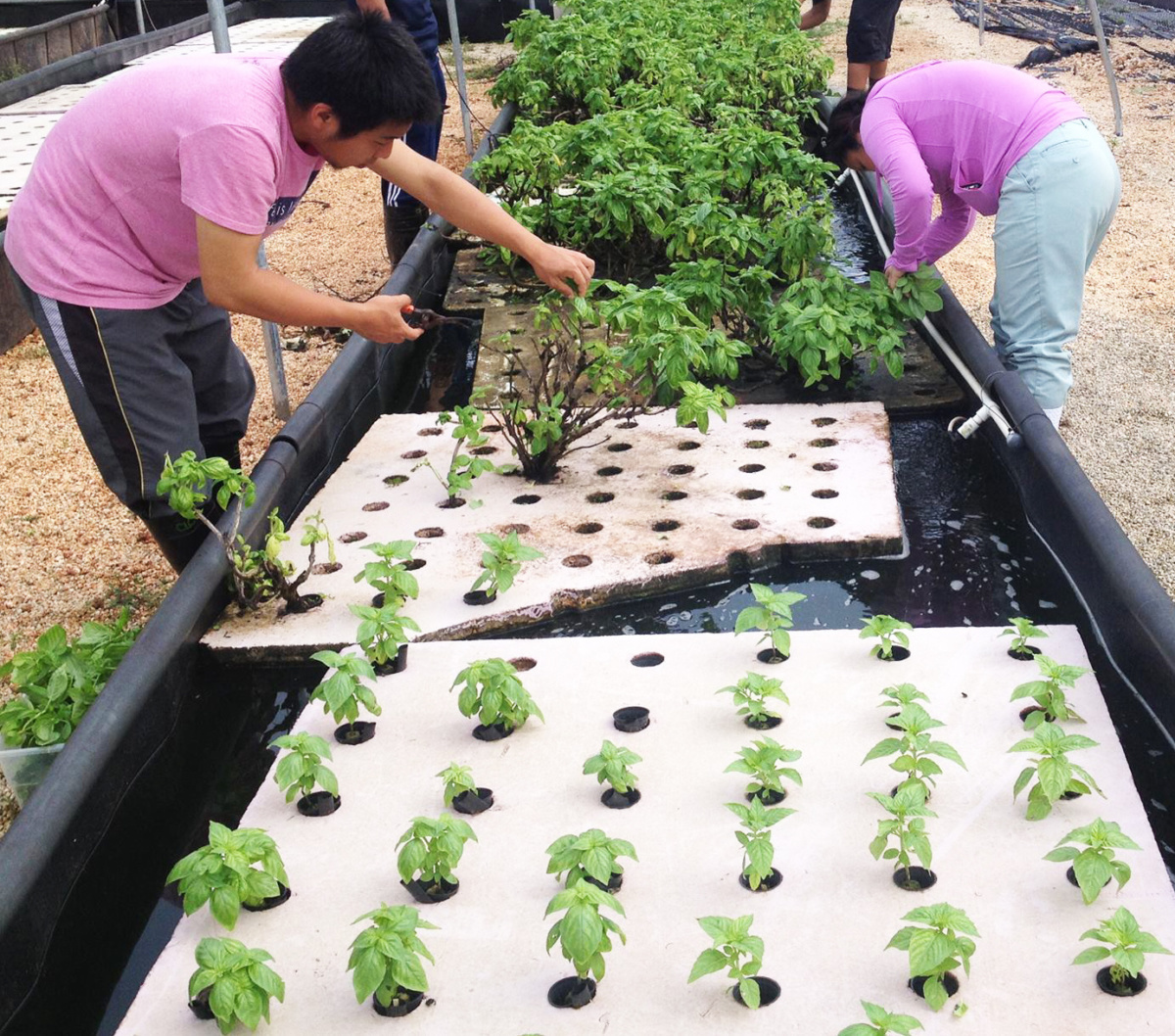Established a decade ago, the UOG Triton Farm serves as an integrated farm model that encourages agricultural research and the use of sustainable farming methods.
The farm not only grows crops, but raises animals such as chicken and fish. It is also one out of three UOG research facilities, two of which are located in Inarajan. The one described in this article is located in Yigo.
“Our goal is to always reduce waste,” said Jessica Nangauta, manager of the Yigo Triton Farm. “We’re trying to transition into a phase in which we don’t have a lot of costs associated with [maintaining] the farm.”
In order to achieve that goal, everything on the farm has to serve a purpose. In the farm’s aquaponics section, tilapia is raised to grow vegetables and herbs such as lettuce, basil, and mint.
The fish produce waste that is used as fertilizer for the plants which then filter the water to make it safe for the fish to thrive. The cycle is constant, so no water is being added to the tank. All the waste, such as the rotten plant parts are fed to the chickens.
The chickens themselves are raised in a freerange, open pasture type of system where they are free to graze on a field where there are a number of fruit trees.
Manure from the chicken houses is taken and used in the compost. Once the compost is a couple of months old, it is applied to the trees.
Fruits from the trees are then ground up and formed into pellets used for chicken feed.
Because the farm also doubles as a research facility, agriculture professors from the University are tasked with performing research projects associated with their specialty, whether it’s horticulture, aquaculture, or apiculture.
“We test what varieties of plants could grow here,” Nangauta said. “One year, we did zucchinis. We tried growing six different strains to see which one would grow the best in our environment and soil.”
As a way to get the community involved, the Triton Farm encourages people to volunteer to help maintain the area’s four-acre grounds. Activities include harvesting, preparing orders for vendors, and planting seeds. The farm also provides service-learning hours to high school students.
But while managing the farm is fun, it comes with its challenges.
Factors such as inclement weather and insects make growing food difficult. Because the Triton Farm staff are natural farmers, they cannot use chemical pesticides. Instead, they use ground hot peppers to repel soft-bodied insects such as caterpillars.
Although it can be hard, people like Nangauta remain passionate about their disposition. She described her role in the farm as her dream job, saying that she and the rest of the staff pride themselves in being a part of a group that grows produce naturally.
“Farming takes patience and time,” she said. “And just being okay with [that] it doesn’t work out sometimes. There are insects and unpredictable weather that might take over your crop. It means being okay with that and trying something else that might work.”
The Triton Farm sells local eggs at $5 for a dozen and is open every day from 8 a.m. to 5 p.m. If you are interested in purchasing produce or volunteering at the farm, contact Jessica Nangauta at 686-6980 or check out their Facebook page at https://www.facebook.com/UOGTritonFarm/

